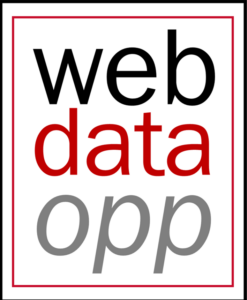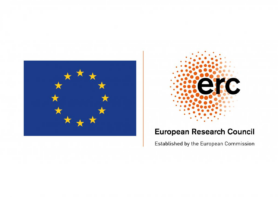Uncategorized
7th MASS workshop in Barcelona – 4 & 5 June 2026
7th MASS workshop in Barcelona – 4 & 5 June 2026
7th MASS Workshop, jointly organised with WEB DATA OPP
Mobile Apps and Sensors in Surveys


Date
4-5 June, 2026
Location
The conference location is the Mercè Rodoreda building at the Ciutadella Campus of Pompeu Fabra University (Ramon Trias 25-27, 08005 Barcelona).
If you plan to use public transport to reach the venue, the closest Metro stations to the campus are Ciutadella-Vila Olímpica (L4) and Arc de Triomf (L1). Additionally, the Wellington and Ciutadella-Vila Olímpica stop on Tram line T4 is in close proximity. Alternatively, you can reach the venue using bus lines H16, V21, and 136, all of which have stops nearby. Hotels and travel arrangements are self-arranged unless you have been contacted separately about this.
Organizing committee
Jan Karem Höhne (Leibnitz University Hannover), Peter Lugtig (Utrecht University), Florian Keusch (University of Mannheim), Bella Struminskaya (Utrecht University), Melanie Revilla (RECSM-University Pompeu Fabra)
Context of the workshop
Mobile devices allow researchers to collect data through built-in sensors, such as GPS, accelerometers, and other sensors, passively collect data in-browser, and use apps in addition to self-reports. Passive mobile data collection can potentially decrease measurement errors and reduce respondent burden. Active data collection using apps, camera, microphone, and other sensors allows researchers to broaden the research questions they want to study. Incorporating new measurements to augment or replace survey questions through sensors and apps brings challenges for representativeness, survey design and implementation, and measurement. This also includes ethical and legal considerations that are yet to be understood.
The goal of this workshop is to bring together around 40 researchers from different disciplines to discuss the current state of their work on the use of mobile apps and sensors in survey data collection. The workshop is only open to participants whose abstracts will be accepted for a paper presentation. Upon acceptance participants are expected to submit a handout (max. of 5 pages).
The workshop is free of charge for participants, but participants are expected to cover their own travel and lodging costs. We have some travel support funds available this year (see submission below).
The program as well as some presentations from six earlier MASS workshops can be found at materials from earlier workshops
Scope of the workshop
The seventh MASS workshop is organised in collaboration with the WEB DATA OPP project, led by Melanie Revilla, and funded by the ERC under the European Union’s Horizon 2020 research and innovation programme (grant agreement No. 849165). Contributions focus on the following methodological issues of using mobile apps, sensors, and wearables in surveys that are linked to Mobile Apps and Sensors in Surveys (MASS) and new Web data opportunities (WEB DATA OPP):
Methodology:
- Technical aspects of mobile apps and sensors; including different ways to collect sensor data, building apps for Android and iOS and data processing and storage
- Study and app design; including the look and feel of apps, usability studies, use of incentives & giving feedback to respondents
- Implementation; including willingness to participate and informed consent, methods to invite and communicate with study participants, study length and study intensity, legal considerations & ethical and privacy considerations
- Quality of sensor data, including errors of non-representation (e.g., self-selection, coverage, and nonparticipation) & Measurement error (e.g., prevention, modeling, and correction)
- Data analysis; including analyzing sensor data (e.g., through machine and deep learning), combining survey, sensor, and app data
Web data opportunities:
- Webtracking
- Visual and voice data
- Geolocations
- In-the moment surveys
We encourage the presentation of work in progress and are particularly interested in studies that use experimental designs to test strategies to collect data from mobile apps, sensors, and wearables. We are open to both empirical studies as well as descriptions of research data collection infrastructure (e.g., front- or backend of an app) and processing of data from apps and sensors.
Participation in the workshop is only possible when an abstract was accepted for the workshop. We intend to keep the workshop limited to about 40 participants.
Timeline:
- 20 January 2026: Deadline for abstract submission (closed)
- 6 February 2026: Feedback on acceptance will be provided.
- 20 February 2026: Registration deadline
- 20 May 2026: Deadline for handout submission – all participants will be required to submit a 5-page handout presenting context, screenshots, tables, or other supporting materials for the workshop. All participants are expected to read all handouts before coming to the workshop
